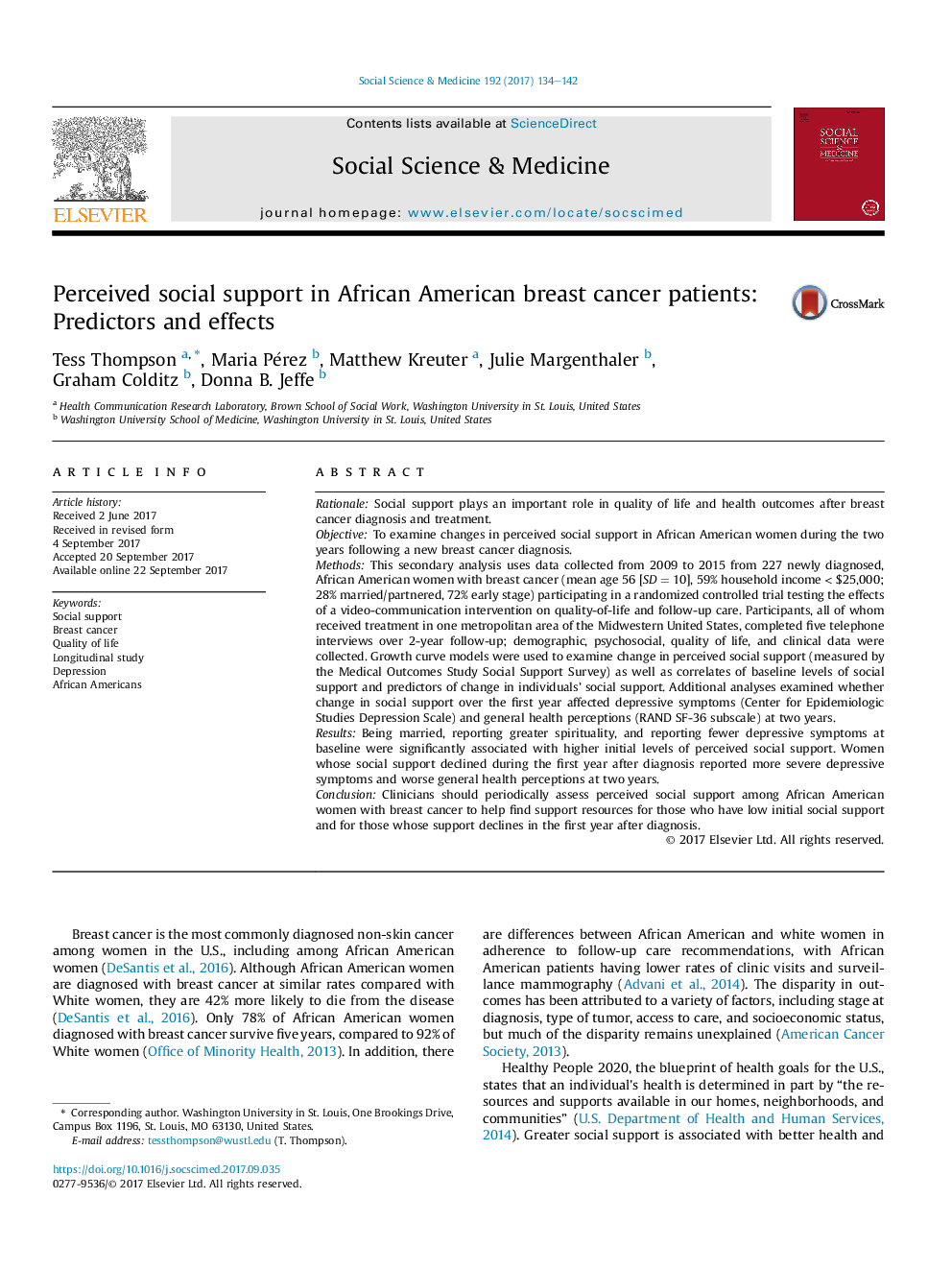| Article ID | Journal | Published Year | Pages | File Type |
|---|---|---|---|---|
| 5046371 | Social Science & Medicine | 2017 | 9 Pages |
â¢In African Americans with breast cancer, several factors related to social support.â¢Greater depressive symptoms were associated with lower perceived support.â¢Being married and reporting greater spirituality were associated with more support.â¢Women whose support declined had more depressive symptoms 2 years post-diagnosis.â¢Women whose support declined reported worse general health 2 years post-diagnosis.
RationaleSocial support plays an important role in quality of life and health outcomes after breast cancer diagnosis and treatment.ObjectiveTo examine changes in perceived social support in African American women during the two years following a new breast cancer diagnosis.MethodsThis secondary analysis uses data collected from 2009 to 2015 from 227 newly diagnosed, African American women with breast cancer (mean age 56 [SD = 10], 59% household income < $25,000; 28% married/partnered, 72% early stage) participating in a randomized controlled trial testing the effects of a video-communication intervention on quality-of-life and follow-up care. Participants, all of whom received treatment in one metropolitan area of the Midwestern United States, completed five telephone interviews over 2-year follow-up; demographic, psychosocial, quality of life, and clinical data were collected. Growth curve models were used to examine change in perceived social support (measured by the Medical Outcomes Study Social Support Survey) as well as correlates of baseline levels of social support and predictors of change in individuals' social support. Additional analyses examined whether change in social support over the first year affected depressive symptoms (Center for Epidemiologic Studies Depression Scale) and general health perceptions (RAND SF-36 subscale) at two years.ResultsBeing married, reporting greater spirituality, and reporting fewer depressive symptoms at baseline were significantly associated with higher initial levels of perceived social support. Women whose social support declined during the first year after diagnosis reported more severe depressive symptoms and worse general health perceptions at two years.ConclusionClinicians should periodically assess perceived social support among African American women with breast cancer to help find support resources for those who have low initial social support and for those whose support declines in the first year after diagnosis.
